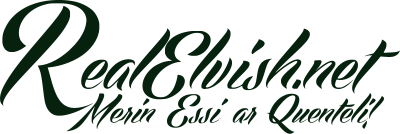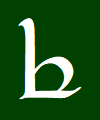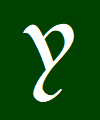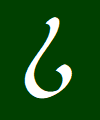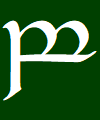Simplified Pronunciation Guide
Vowels
Monophthongs
- A – long as in ‘father’
- Æ – the TRAP vowel, short as in ‘bad’, ‘glad’
- E – the DRESS vowel, short as in ‘bed’, ‘fed’
- Ĭ – the KIT vowel; short as in ‘sick’
- I – a long ‘i’ as in ‘machine’
- O – the GOAT vowel, long as in ‘load’, ‘rode’
- Ŏ – the LOT vowel; short as in ‘cloth’, ‘top’
- Ŭ – the FOOT vowel, the ‘u’ in ‘full’, ‘put’
- U – the GOOSE vowel, the sound in ‘through’, ‘dew’, ‘you’
- Y – identical to Sindarin ‘y’, the French ‘u’ in ‘lune’
- Ŷ – a longer ‘y’, French ‘sur’
Diphthongs
- EI – the ‘ai’ sound of ‘rain’, ‘pain’
- ER – the sound of ‘air’, as in ‘fair’, ‘hair’
- OW – the ‘ou’ in ‘loud’
Glides
- IE – the ‘ea’ sound in ‘dear’, ‘fear’
Consonants
- CH – as in ‘church’
- DG – as in ‘edge’, ‘sedge’
- DH – the voiced ‘th’ as in ‘these’, ‘that’
- F – soft, as in ‘frame’
- G – hard, as in ‘get’, ‘girl’
- H – as in ‘had’, ‘him’
- J – the ‘y’ in ‘yellow’
- K – as in ‘kirk’, or the hard c in ‘climb’
- KH – as in the CH in Loch, Bach
- L – the light l of ‘let’, not the dark l of ‘bottle’
- Ň – the ‘ng’ in ‘sing’, ‘ring’
- Ř – the normal English ‘r’ found in ‘red’, ‘bread’, ‘train’ etc.
- S – ‘s’ as in ‘scene’, ‘sit’
- SH – as in ‘ship’, ‘short’
- SK – as in ‘skate’, ‘skin’
- TH – the soft ‘th’ in ‘thing’, ‘thought’
- V – as in ‘verge’, ‘violet’
- W – as in ‘wing’, ‘wild’
- Z – the ‘z’ in ‘sneeze’ or the ‘s’ in ‘dreams’, ‘things’
The ‘h’ sounds
- HL – the ‘Welsh LL’
- HN – a soft breath before the N
- HR – a soft breath before the R
- HW – a soft breath before the W (Scots ‘WH’)
All consonants are pronounced individually. Words like cniht and gnagan have all letters pronounced individually (k+n+ĩ+h+t, g+n+a+g+a+n). This includes clusters that would be silent in modern English such as W+R. Stress falls at the beginning of a word unless it starts with the prefix Ge- or Gi-. These never bear stress, so in these words the stress always falls on the next syllable.
Old English (Rohirric) pronunciation guide
This matches Old English spelling as opposed to the simplified pronunciation I developed above.
Monophthongs
Short vowels
- Æ – as in ‘bad’, ‘had’
- E – as in ‘bet’, ‘get’
- I – as in ‘sick’, ‘hit’
- O – as in ‘body’, ‘lop’
- U – as in ‘bull’, ‘pull’
- Y – as in French ‘lune’
Long vowels
- A – as in ‘father’ (or German ‘Mann’)
- É – as in ‘spay’, ‘flay’, ‘hay’
- Í – as in ‘machine’, ‘latrine’
- Ó – as in ‘goat’, ‘rode’
- Ú – as in ‘through’, ‘true’
- Ŷ – a longer ‘y’, French ‘sur’
Diphthongal glides
- EA – a glide from a short ‘e’ to the final sound of ‘air’, ‘hare’
- EO – a glide from a short ‘e’ to the vowel sound of ‘loud’, ‘proud’
- IE – the ‘ea’ sound of ‘beard’, ‘afeard’
Consonants
- C – hard as in ‘cat’, ‘call’
- CI/CE/-IC – the ‘ch’ sound of ‘church’
- CG – either a hard ‘g’ as in ‘get’ (medially) or the ‘dg’ sound of ‘edge’ (finally). Can be interchangeable.
- D – as in ‘door’, ‘drum’
- F – if it begins or ends a word, soft as in ‘frame’, ‘fee’. Becomes a ‘v’ as in ‘seven’ if it appears medially unless it is next to a voiceless consonant
- G – hard as in ‘get’, ‘grim’ if it comes before the vowels A, O, U and Æ, or the consonants R, L and N. Medially and finally it becomes the ‘ch’ in ‘Loch’, ‘Bach’.
- GE/GI/-IG – the ‘g’ is a ‘y’ as in ‘year’, ‘yet’
- H – if it starts a word, like ‘heart’, ‘have’. Medially and finally like the ‘ch’ in ‘Loch’, ‘Bach’
- HL – as the Welsh LL in ‘Llandudno’, ‘Llangefn’
- HN – a soft breath before the ‘n’
- HR – a soft breath before the ‘r’
- HW – a soft breath before the ‘w’, as in Scots English ‘Where’, ‘Which’
- L – light as in ‘let’, ‘link’
- M – as in ‘man’, ‘meat’
- N – as in ‘number’, ‘none’
- P – as in ‘pat’, ‘purple’
- R – as in English ‘red’, ‘bring’ (not trilled)
- S – If it starts or ends a word, like ‘set’, ‘sing’. Medially like ‘z’ in ‘zither’, ‘dozy’
- SC – the ‘sh’ sound of ‘ship’, ‘short’
- SS – as in ‘set’, ‘sing’
- T – as in ‘step’, ‘talk’
- TH – If it starts or ends a word, soft like ‘thing’, ‘thought’. Medially like ‘this’, ‘that’.
- W – as in ‘wing’, ‘water’
J, Q, V, X and Z are not used.
